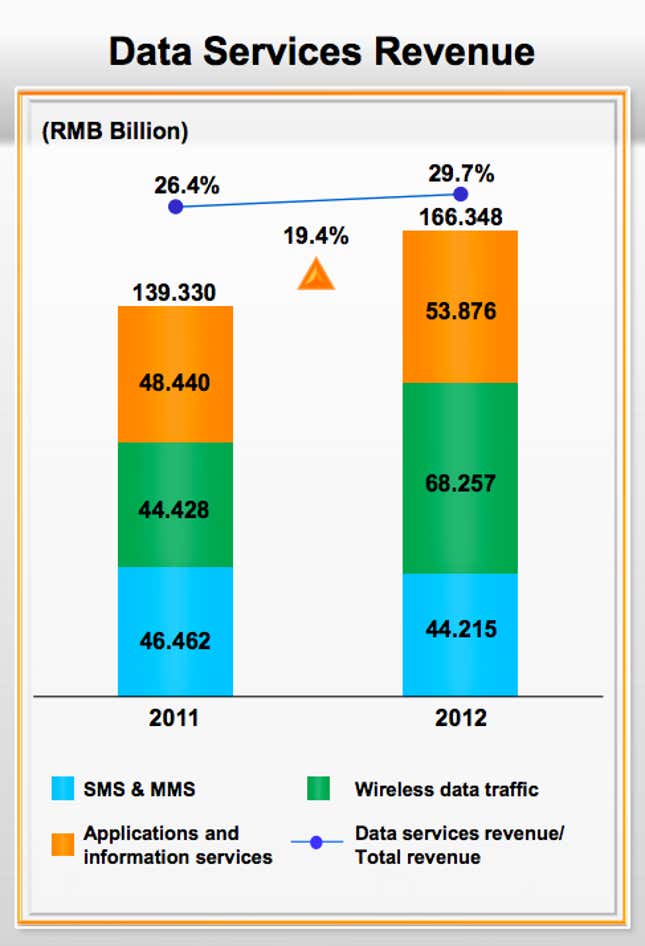
Though China’s three state-owned telecoms enjoy a comfy oligopoly, some things have been eating into their profits of late.
The first is Apple’s iPhone. Ironically, the gadget that all telecoms companies fall over each other to offer their customers is proving more trouble than it’s worth. China Telecom just revealed a 9.5% drop in net profit in 2012 compared with the previous year; marketing and subsidising the iPhone has, it says, has put “short-term pressure on profitability” (pdf). The other licensed iPhone seller, China Unicom, missed analyst profit estimates in Q3 2012, as its marketing expenses and subsidies also spun out of control. Watch those expenditures soar even more as the two companies compete over iPhone 5 sales.
Apple still won’t let China Mobile, the biggest of three, sell iPhones. So it’s dodged that bullet for now. But another tech woe is steadily eating away at Mobile’s margins. In 2012, SMS and MMS revenue fell (pdf, p.19):

This isn’t just a fluke of pricing or marketing—the average Chinese phone users sent 9% fewer SMSes (link in Chinese) in 2012, compared with 2011. So have Chinese people started communicating less?
Nope. They’re using WeChat, the mobile app from Tencent that allows users to message each other for free via wifi or data connections. What’s worse, WeChat offers voice messaging, which is eating up a ton of Mobile’s bandwidth. As Li Yue, CEO of China Mobile, put it in the earnings press conference, WeChat “is definitely reducing our value by a large margin” (paywall). In fact, China Mobile chairman Xi Guohua recently said he’s less worried about competition from Telecom and Unicom than from WeChat …
… and Skype. Xi told Nanfang Dushi Bao that the both WeChat and Skype “could lead to a qualitative transformation” as they provide a “major alternative to voice and short-messaging” (link in Chinese). Skype, though, was “even more frightening” than WeChat—making it, by implication, the single-biggest potential competitive threat to the world’s largest mobile telecom company.